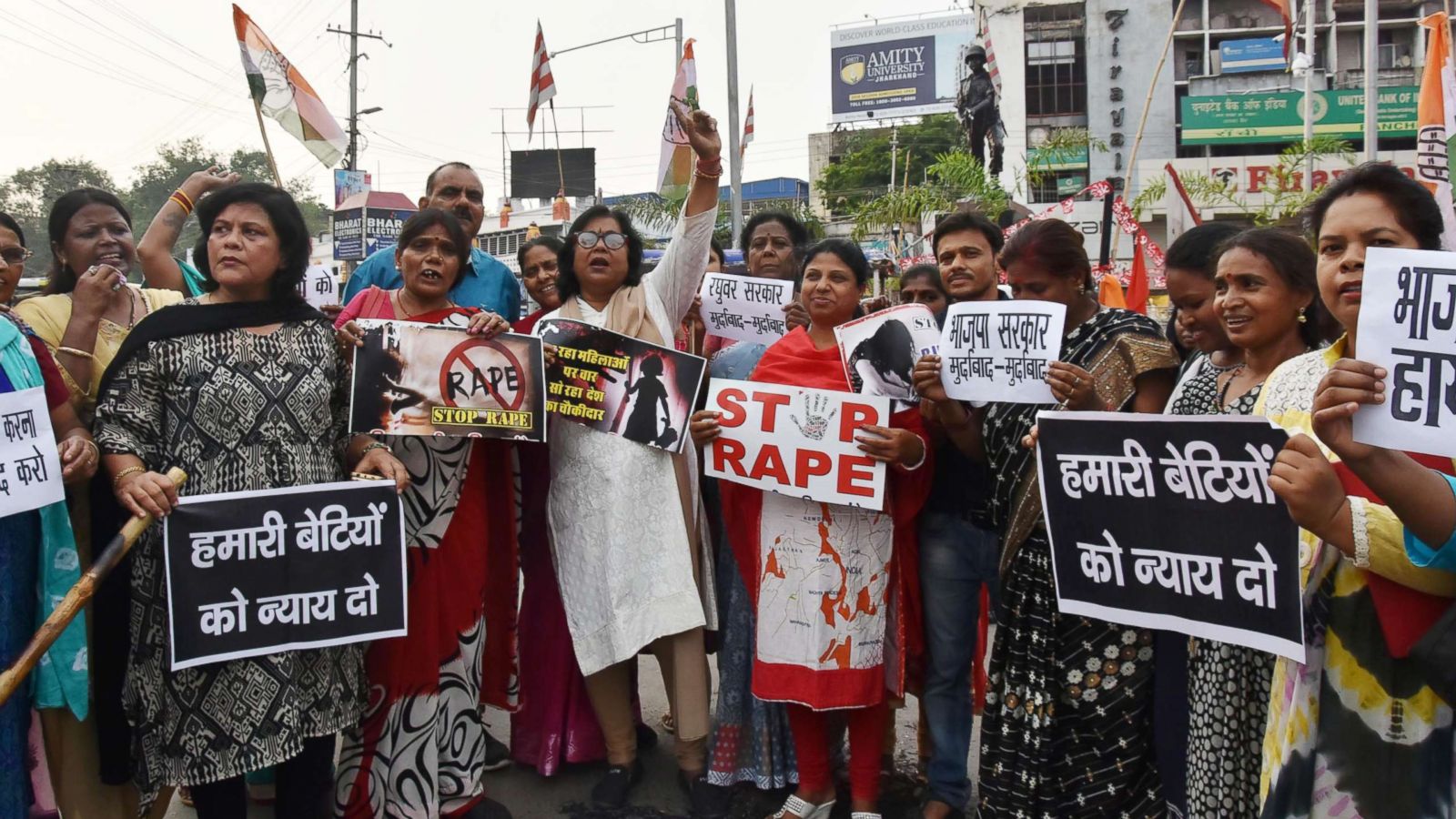
by Shaimin Raja 21 August 2023
The pervasive specter of sexual violence casts a long and chilling shadow across the landscape of India, where a staggering count of nearly 110 rape cases are reported every day. However, these figures, stark as they are, serve as a mere glimpse into a far more disturbing reality – the majority of incidents go tragically unreported, trapped in the stifling web of fear, shame, and cultural stigma that perpetuates this dire issue. Beyond the numbers, a profound and deeply rooted problem demands a comprehensive and unwavering response.
The somber acknowledgment from prominent Congress leader Rahul Gandhi, who unflinchingly referred to India as the “rape capital of the world,” lends an air of stark urgency to the matter at hand. The National Crime Records Bureau (NCRB), in its sobering reports, brings to light over 28,000 instances of rape that scarred the nation in the year 2020 alone. Further compounding this grim portrait, the NCRB’s data from September 2021 laid bare a staggering count of more than 370,000 reported crimes against women in the preceding year. These numbers, though unsettling, serve as a mere fraction of the true scope, as societal pressures and the daunting prospect of being further victimized often discourage victims from stepping forward.
The deeply distressing reality is exacerbated by the alarming and disheartening lack of swift and effective justice for survivors. Despite existing laws that classify rape as a non-bailable offense under the Indian penal code, the wheels of justice frequently falter, allowing many perpetrators to secure bail due to the lack of substantial evidence. More disturbingly, some accused individuals manage to find sanctuary within influential circles, be it law enforcement, politics, or legal institutions, perpetuating a corrosive culture of impunity that erodes the bedrock of public trust in the justice system. India’s intricate tapestry, woven with rich cultural heritage and attractions, holds a haunting contradiction – the safety of women travelers, both domestic and international, is an unsettling concern. Governments of various nations, including the U.K., U.S., France, and Switzerland, have issued sobering advisories, urging their citizens, especially women, to exercise heightened vigilance while venturing to or residing in India.
Concrete and deeply unsettling incidents bring the stark reality of sexual violence into sharper focus. The year 2022 witnessed the horrifying violation of a British woman near Goa’s picturesque Arambol Beach, while her male partner stood helpless, the facade of a massage concealing a heinous crime. Equally haunting is the account of a 37-year-old Russian tourist, ensnared by two Indian room attendants in Calangute, Goa, who subjected her to rape while incapacitating her with alcohol. These tragedies stand alongside a litany of heart-wrenching stories, including the gang rape of a Russian tourist in the town of Tiruvannamalai, Tamil Nadu; the brutal assault of an American tourist in a prestigious New Delhi hotel; and the violation of a Japanese woman by an Indian tourist guide against the enchanting backdrop of Jaipur.
The heartrending list of incidents extends, each narrative more distressing than the last, serving as a testament to the vulnerability of women and the dire urgency of profound change. To address the deep-seated crisis of sexual violence, a multifaceted approach is imperative. It demands comprehensive legal reforms, fortified law enforcement, and a seismic shift in societal attitudes toward women. Educational campaigns, rooted in dismantling harmful norms and fostering an environment where victims feel emboldened to come forward, are a cornerstone. Equally pivotal is the bolstering of support systems for survivors, ensuring they have unhindered access to essential resources and protection necessary for rebuilding their lives.
The challenges before India are undeniably colossal, yet within this bleak landscape, individuals and organizations tirelessly strive to dismantle the machinery of sexual violence. Their unwavering dedication to nurturing safer environments and advocating for the rights and dignity of women deserves resounding recognition and unwavering support. Only through a concerted, collective effort can India hope to rewrite its narrative, forging a future where women can move through life not only unburdened by fear but empowered to flourish.
